The Lavin Agency Speakers Bureau
A speakers bureau that represents the best original thinkers,
writers, and doers for speaking engagements.
We value your privacy
We use cookies to enhance your browsing experience and to analyze our traffic. By clicking "Accept All", you consent to our use of cookies.
We use cookies to help you navigate efficiently and perform certain functions. You will find detailed information about all cookies under each consent category below.
The cookies that are categorized as "Necessary" are stored on your browser as they are essential for enabling the basic functionalities of the site. ...
Necessary cookies are required to enable the basic features of this site, such as providing secure log-in or adjusting your consent preferences. These cookies do not store any personally identifiable data.
Functional cookies help perform certain functionalities like sharing the content of the website on social media platforms, collecting feedback, and other third-party features.
Analytical cookies are used to understand how visitors interact with the website. These cookies help provide information on metrics such as the number of visitors, bounce rate, traffic source, etc.
Performance cookies are used to understand and analyze the key performance indexes of the website which helps in delivering a better user experience for the visitors.
Advertisement cookies are used to provide visitors with customized advertisements based on the pages you visited previously and to analyze the effectiveness of the ad campaigns.
A speakers bureau that represents the best original thinkers,
writers, and doers for speaking engagements.
Ageism is prejudice against our future selves. What if we were free of it?
Ashton Applewhite asks us to challenge the forces that frame two-thirds of life as decline and some lives as more valuable than others. “It’s not ethical—or legal—to allocate resources by race or sex,” she points out, “and weighing the needs of the young against the old is equally unacceptable. Period.” She’s the co-founder of The Old School Hub, an organization that curates resources and hosts events for age equity and ageism awareness. In dynamic talks, Ashton helps audiences perceive age bias between our ears and in the world around us; explains why age is a key criterion for true inclusion; teaches organizations how to reap the rewards of a mixed-age workforce; and shows why age belongs alongside race, gender, sexuality, and other identifiers that require us to think deeply and inclusively about how we live.
Ashton Applewhite shows us that a world for all ages is indeed possible if we recognise the potential within each of us, speak truth to power, and stand together as one.UN Decade of Healthy Ageing
In a world of longer lives, the stakes are high and the time is now. In 2020, the World Economic Forum recognized the global community’s “role and responsibility to combat ageism.” In 2021, the World Health Organization launched its Global Campaign to Combat Ageism. In 2022, Ashton appeared on the first international edition of 40 over 40 – The World’s Most Inspiring Women, because global conversations about equity can no longer overlook age.
Ashton’s trailblazing book, This Chair Rocks: A Manifesto Against Ageism, was listed as one of the “100 Best Books to Read at Every Age” by The Washington Post and named by Forbes as one of 10 books to help you foster a more inclusive workplace. This Chair Rocks explores the roots of ageism and how it divides us, examines how ageist stereotypes affect our bodies and minds, and lays out a road map for what an all-age-friendly world could look like. It ends with a rousing call to action, which Library Journal called “a spark for social change.” Ashton is fanning this spark into a blaze of social revolution and transformation, encouraging us to cultivate age-neutral mindsets and envision the immense possibilities of age equity—in our professional lives, in our communities, and in ourselves.
Ashton has appeared on the UN and WHO’s first ever Healthy Ageing 50, HelpAgeUSA’s inaugural 60 Over 60 list of Americans “who are making significant contributions to society at the local, national or international level,” and Fe:maleOneZero’s first international edition of 40 over 40 – The World’s Most Inspiring Women (referenced above), a group of “extraordinary women who have one thing in common: they change the world for the better”; and received the prestigious Maggie Kuhn Award for being a “visionary leader, author and advocate in combating ageism.” She has written for Harper’s, the New York Times, The Guardian, and the Los Angeles Review of Books, and has spoken at venues that range from community centers and universities to the TED main stage and the United Nations.
Our attendees loved hearing Ashton Applewhite explore all the facets of age bias. With a writer’s tenacity and grace, Applewhite takes the listener by the hand, walks them through the data and layers of consideration in which her ideas are grounded, and guides them towards at a more empathetic view of what it’s like to be ‘othered' in our fast-paced world. We simply loved having her!
National Apartment AssociationThis was a fantastic event. One of meaning, and which contributed so much to our company culture. Ashton was so full of content and very engaging—she did not know it but she was providing a "To Do" list for all the Inclusive Resource Groups on how to educate and stop ageism within our company. Thank you for helping us create this event. It has been our most memorable to date company-wide! Folks are still talking about the subject matter and her delightful, informative speech. It definitely made a difference as we are working with HR and hope to develop training material for them and managers to teach how to avoid ageism.
IndeedThank you for your poignant keynote, and for grounding the Summit in the realities of social change as a practice, abundance, interdependency, learning from organizers, and age pride. The themes you so beautifully and clearly underscored continued to surface in every session and dialogue. I hope you felt the love and know how much your work has done for creative aging across the globe.
Lifetime ArtsYour presentation on ageism and how it links to livable communities was wonderful! The responses we've received have been absolutely positive, with people being very inspired and feeling much more informed. We really appreciated your conversation too—just so real and down to earth. That rally made an impact! Thank you so much for your time, talent, and expertise, Ashton. It was a privilege to engage with you.
9th Biennial Aging With Passion & Purpose ConferenceAshton, I wanted to thank you for such a brilliant interview. I had fully expected the content to be rich and aligned with my work, but what really impressed me was your delivery. To say it was refreshing is an enormous understatement. It was no-nonsense, direct, transparent, and unabashedly honest. I came away thinking I would listen to you any day—no matter what your message. My only complaint is that most often I am able to check my email while only half-listening to these virtual forums. Your presentation was so unique my email was left completely unattended...Please don't ever stop voicing your opinions.
Global Institute for Experienced EntrepreneurshipIf you've ever brought in a speaker for an event - paid or not, virtual or not - have you had 100% of the people who registered show up? And then have those attendees stay engaged and send you thank you notes afterwards? We got all that when Ashton Applewhite spoke to our members on the topic of the harm ageism does!
SecureSeniorConnectionsThank you for an absolutely amazing presentation. You were exceptionally well prepared as a presenter, very polished in your delivery, and yet, somehow still made it feel like a conversation among friends. Praise for your presentation continues to roll in from all angles – consumers, stakeholders, funders, government officials… You clearly didn’t segment the audience; you touched them all!
California Department of AgingAshton was a big hit with our audience and they loved her message and energy! What an engaging speaker!
Rancho Mirage Writers FestivalAshton's talk really provided an in-depth understanding of the pervasive nature of ageism and ablism. Judging by the immediate feedback, the presentation was very well received. We truly appreciate Ashton's help.
UXDS I&D CommitteeAshton Applewhite’s thoughtful, funny, and very smart talk This Chair Rocks was perfect for launching our new center. It attracted a lively, multigenerational crowd, reflected our core message that aging can be met head-on with optimism, and got people fired up about the prospect. What could be better?
Senior Planet Exploration Center, NYCAgeism begins at home—in us. With humor and insight, Ashton Applewhite’s terrific keynote at the Positive Aging Conference reminded all of us what's at stake, since elders are ‘our future selves.’ Thank goodness we've got her telling this story.
AARPThis Chair Rocks is a talk that confirms our knowledge that emotional well being is abundant in later life, challenges us to face our own internalized ageism, and inspires us to envision a future in which our society is released from the fetters of age-related prejudice and discrimination. And it’s fun, too!
Geriatric Mental Health Alliance of New YorkEvery attendee was captivated by Ashton Applewhite’s charm, intelligence, and easy way of explaining the origins and complexities of ageism. I knew her keynote resonated, as they gave her a standing ovation and then bought her book! This presentation is a must for any group interested in raising awareness of age bias and dispelling harmful myths and stereotypes.
Deal With It: A Woman’s ConferenceApplewhite ... was by turns factual, passionate, and witty as she recounted anecdotes from her own life and the lives of “olders” she has encountered. She coined that term because it emphasizes the spectrum along which chronological age becomes increasingly irrelevant. The audience gave Applewhite a rousing ovation and stayed around for a lively discussion afterwards.
The Cooper UnionThank you so much for your very valuable contribution to our retirement conference. Your keynote received so many positive comments that I don’t know where to start (the most frequent comment was, ‘Inspiring!’).
Brookdale Community CollegeAshton Applewhite’s plenary address at our New York State Adult Abuse Training Institute was compelling and original, and really resonated with our 400 participants. She is an articulate and committed voice for an important cause: challenging the demoralizing shadow that ageism casts across society.
Brookdale Center for Healthy AgingThank you again for your terrific keynote. I heard from so many attendees that it affected them deeply. You are wise, funny, and provocative – a great combination!
Aroha PhilanthropiesAshton, thank you for you presentation and open discussion this morning! You were so engaging! I’ve received several compliments on the topic, and we appreciate your time and candor with the group. You were the highlight of our ERG spotlight month- thank you again!
nVent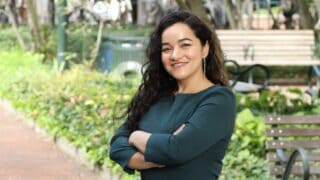
Associate Professor of Business Economics and Public Policy at Wharton 2024 "Top 40 Under 40" Business Professor Author, Having It All (Forthcoming)
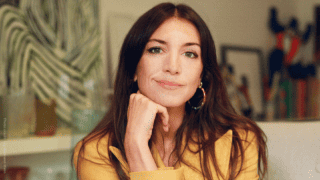
Instant New York Times Bestselling Author of The Story of Art Without Men 2021 Forbes 30 under 30 Europe Guardian Columnist Art Historian and Curator
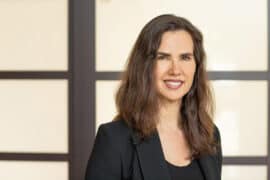
Author of Self-Compassion: The Proven Power of Being Kind to Yourself Co-founder of the Center for Mindful Self-Compassion

Host of the Peabody-Winning Netflix Docuseries High on the Hog Founder of Whetstone Media and HONE Talent
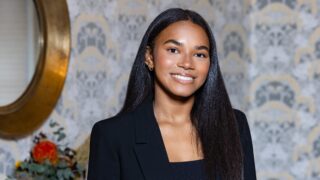
Founder of the "I Matter" Poetry and Art Competition Teen Vogue 21 Under 21 Honoree Winner of the Princeton Prize in Race Relations
New York Times bestselling author of Charged New York Times Magazine staff writer Political Gabfest co-host

Harvard Business School Behavioral Science Professor "40 Under 40 MBA Professor" Author of TALK: The Science of Conversation and the Art of Being Ourselves

Speaker on Stress and Leadership in the Workplace Columbia Business School Professor Host of The TED Business Podcast
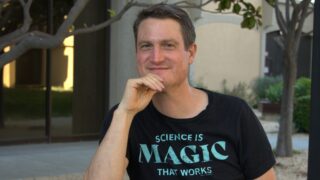
Author, Ordinary Magic Co-Director, Dweck-Walton Lab at Stanford Professor of Psychology, Stanford

Author of Grit, the #1 New York Times Bestseller | Pioneering Researcher on Grit, Perseverance, and the Science of Success

2024 Nobel Prize Winner | 3rd Most Cited Economist in the World | MIT Institute Professor | Bestselling Co-Author of Why Nations Fail and Power and Progress

Harvard Business School Behavioral Science Professor | "40 Under 40 MBA Professor" | Author of TALK: The Science of Conversation and the Art of Being Ourselves

New York Times Bestselling Co-Author of Abundance | Host of thePlain English Podcast | Staff Writer at The Atlantic

#1 New York Times Bestselling Author of How the Word Is Passed and Above Ground | The Atlantic Staff Writer

There’s a global labor shortage. Companies with employees of various ages enjoy an advantage in the war for talent because they can tap into more human and social capital. Mixed-age teams bring together people with complementary skills, experience, and networks. They’re especially good at complex decision-making. Retaining older employees reduces turnover and safeguards invaluable institutional...
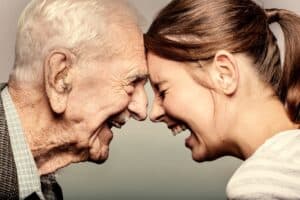
From childhood on, we’re barraged by messages that it’s sad to be old. That wrinkles are embarrassing and old people are useless. In this provocative, funny, and deeply informed talk, Ashton explains the roots of ageism—in society and in our own age denial—and how it divides and diminishes us. Ashton sets out the personal and professional consequences (especially for women), shows how ageist my...
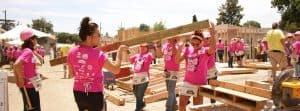

What makes aging different for women—and so much harder than it has to be? How does the double impact of ageism and sexism affect women’s health, income, and well-being? And how does competing to “stay young” dig the hole even deeper? In this rousing talk, Ashton Applewhite proposes throwing away the shovel, forging cross-generational compacts, and collaborating on new ways of thinking and beha...

Every year an estimated one in ten Americans over age 60—over seven million people— experiences some form of abuse. 95% of cases go undetected. Nonetheless, unlike domestic violence or child abuse, we don’t talk about it much. Raised to value youth and speed, we grossly underestimate the quality of life of older people, as well as its value. We project our fears. We turn away, reluctant to ackn...